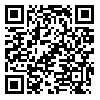Sat, Jul 27, 2024
[Archive]
Volume 8, Issue 1 (Winter 2022)
JCCNC 2022, 8(1): 41-50 |
Back to browse issues page
Download citation:
BibTeX | RIS | EndNote | Medlars | ProCite | Reference Manager | RefWorks
Send citation to:



BibTeX | RIS | EndNote | Medlars | ProCite | Reference Manager | RefWorks
Send citation to:
Mollaei Z, Rahemi Z, Izadi Avanji F S, Sarvizadeh M, Hosseinian M, Akbari H. The Effect of Self-care Training by Peer Group on the Resilience of Patients With Cancer: A Randomized Clinical Trial. JCCNC 2022; 8 (1) :41-50
URL: http://jccnc.iums.ac.ir/article-1-338-en.html
URL: http://jccnc.iums.ac.ir/article-1-338-en.html
Zahra Mollaei1 

 , Zahra Rahemi2
, Zahra Rahemi2 

 , Fatemeh Sadat Izadi Avanji *
, Fatemeh Sadat Izadi Avanji * 

 3, Mostafa Sarvizadeh4
3, Mostafa Sarvizadeh4 

 , Masoumeh Hosseinian1
, Masoumeh Hosseinian1 

 , Hosein Akbari5
, Hosein Akbari5 




 , Zahra Rahemi2
, Zahra Rahemi2 

 , Fatemeh Sadat Izadi Avanji *
, Fatemeh Sadat Izadi Avanji * 

 3, Mostafa Sarvizadeh4
3, Mostafa Sarvizadeh4 

 , Masoumeh Hosseinian1
, Masoumeh Hosseinian1 

 , Hosein Akbari5
, Hosein Akbari5 


1- Trauma Nursing Research Center, School of Nursing, Kashan University of Medical Sciences, Kashan, Iran.
2- School of Nursing, Clemson University, Clemson, USA.
3- Trauma Nursing Research Center, School of Nursing, Kashan University of Medical Sciences, Kashan, Iran. ,fs.izadi@gmail.com
4- The Advocate Center for Clinical Research, Ayatollah Yasrebi Hospital, Kashan, Iran.
5- Department of Biostatistics and Public Health, Faculty of Health, Kashan University of Medical Sciences, Kashan, Iran.
2- School of Nursing, Clemson University, Clemson, USA.
3- Trauma Nursing Research Center, School of Nursing, Kashan University of Medical Sciences, Kashan, Iran. ,
4- The Advocate Center for Clinical Research, Ayatollah Yasrebi Hospital, Kashan, Iran.
5- Department of Biostatistics and Public Health, Faculty of Health, Kashan University of Medical Sciences, Kashan, Iran.
Abstract: (1870 Views)
Background: Resilience is the individual’s ability to maintain or restore mental health and physical function in the face of stressful events and adversity. However, educational interventions can enhance resilience. The present study was conducted to determine the effect of self-care education by peer groups on the resilience of patients with cancer.
Methods: A Randomized Clinical Trial (RCT) was conducted on 80 patients with cancer referring to the chemotherapy center of Ayatollah Yathribi Hospital in Kashan City, Iran. The subjects were randomly assigned into the control and intervention groups (40 per group). Peer group members trained the intervention group in 4 sessions (one session per week), but the control group received routine care. The Connor-Davidson Resilience Scale (CD-RISC) was used to collect data at the beginning of the trial and then one week and three months after the intervention. Data analysis was performed using the independent t-test and repeated measures ANOVA in SPSS software, v. 16.
Results: There was a significant difference between the mean score of the groups’ resilience one week after the intervention (P=0.01), but no significant difference was seen between the groups’ resilience scores three months after the study (P=0.11). However, based on the repeated measures ANOVA and the model’s results using the Huynh-Feldt correction, there was an increase in the resilience score of the intervention group over time (P=0.008). Furthermore, there was a significant difference between the two groups in terms of time*group interaction, indicating a significant difference between the two groups in terms of resilience score over time (P=0.004).
Conclusion: It is suggested that this intervention be provided by the healthcare team along with routine treatments to improve the resilience and mental health of patients with cancer.
Methods: A Randomized Clinical Trial (RCT) was conducted on 80 patients with cancer referring to the chemotherapy center of Ayatollah Yathribi Hospital in Kashan City, Iran. The subjects were randomly assigned into the control and intervention groups (40 per group). Peer group members trained the intervention group in 4 sessions (one session per week), but the control group received routine care. The Connor-Davidson Resilience Scale (CD-RISC) was used to collect data at the beginning of the trial and then one week and three months after the intervention. Data analysis was performed using the independent t-test and repeated measures ANOVA in SPSS software, v. 16.
Results: There was a significant difference between the mean score of the groups’ resilience one week after the intervention (P=0.01), but no significant difference was seen between the groups’ resilience scores three months after the study (P=0.11). However, based on the repeated measures ANOVA and the model’s results using the Huynh-Feldt correction, there was an increase in the resilience score of the intervention group over time (P=0.008). Furthermore, there was a significant difference between the two groups in terms of time*group interaction, indicating a significant difference between the two groups in terms of resilience score over time (P=0.004).
Conclusion: It is suggested that this intervention be provided by the healthcare team along with routine treatments to improve the resilience and mental health of patients with cancer.
Type of Study: Research |
Subject:
General
Received: 2021/10/20 | Accepted: 2021/11/22 | Published: 2022/02/1
Received: 2021/10/20 | Accepted: 2021/11/22 | Published: 2022/02/1
Send email to the article author
| Rights and permissions | |
 |
This work is licensed under a Creative Commons Attribution-NonCommercial 4.0 International License. |



